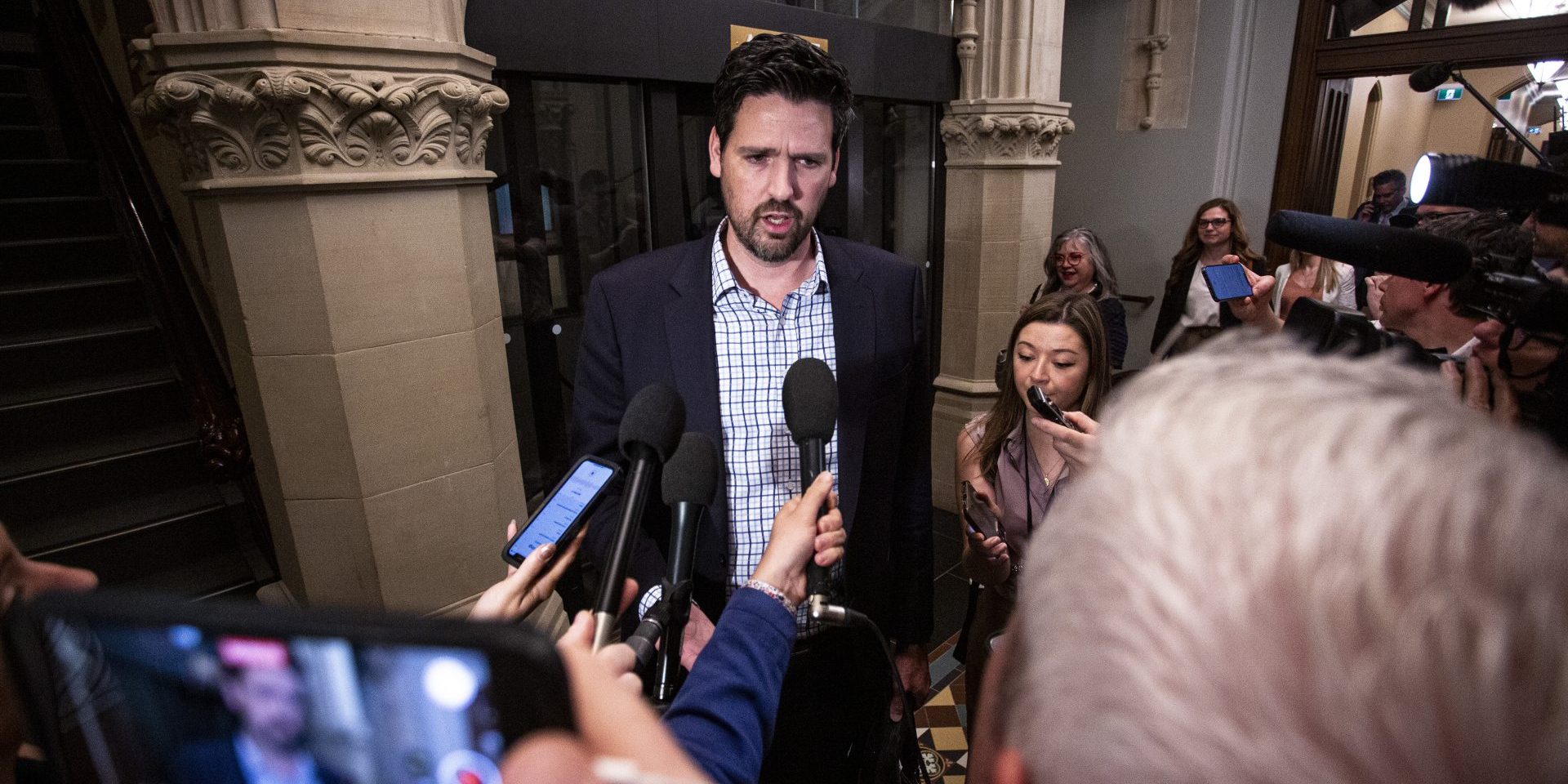Carney’s so-called Combatting Hate Act is an attack on pro-Palestine expression

We are lawyers who regularly defend protesters facing criminal charges. Our experience shows that no good will come from Bill C-9, the Combatting Hate Act. The Carney government is giving the police enhanced tools that could be used to criminalize dissent against Israel’s genocide in Gaza under the guise of combatting antisemitism.
The government claims this bill, introduced on Sept. 19, is meant to “more clearly address and denounce hate-motivated crime.” The bill limits protest at certain locations, echoing the City of Toronto’s likely unconstitutional bubble zone bylaw, and makes it a crime to display symbols “associated with” listed terrorist organizations in certain circumstances.
The bill also empowers the police to unilaterally lay “hate propaganda” charges, removing the existing requirement that the attorney general approve such charges, which could undermine freedom of expression.
But police don’t need these new powers to address hate crimes. Much of the conduct the bill targets—like “threats or acts of violence”—is already illegal. And despite the government’s claims to the contrary, the new offences seem designed to specifically muzzle pro-Palestine speech.

Pro-Palestine protesters routinely face specious allegations of hate that conflate criticism of Israel with antisemitism. Toronto Metropolitan University law students who signed an open letter in support of Palestine in 2023, for example, were widely accused of antisemitism, but an independent inquiry cleared them of that charge. The University of Toronto similarly accused its own students of antisemitism in a lawsuit over a protest encampment. A judge rejected that allegation in July 2024, agreeing with the students about the risk of “a new form of McCarthyism against those who express support for Palestinian rights.”
In our experience, police have been at the forefront of this new McCarthyism. In Toronto, the Hate Crime Unit is responsible for policing all protests related to Palestine. This assignment assumes that all pro-Palestine protesters are potential hate criminals—an assumption that smacks of anti-Palestinian racism.
In the case of the Indigo 11 (which we helped defend), the Hate Crime Unit directed SWAT-style nighttime raids on the homes of people who were alleged to have engaged in peaceful postering. In widely reported press releases, police said they were investigating this incident as a potential hate crime. In fact, the evidence was to the contrary—Indigo was postered because of the CEO’s support of the Israeli army, not because she is Jewish. The case ended with zero convictions, but not before severely disrupting the lives of those subject to the police’s baseless and devastating insinuations.
The Indigo 11 are far from the only victims of the police’s heavy-handed response to pro-Palestine expression. According to community organizers supporting arrestees in the GTA, at least 133 pro-Palestine protesters have been charged in the last two years alone. Many of these charges are still pending; the rest have either ended in withdrawals or discharges. None have stuck.
The new bill makes this situation worse. For example, Jews Say No to Genocide have led peaceful protests outside of synagogues hosting the real estate sale of occupied Palestinian land, and the speaking tour of Israeli soldiers who participated in the Gaza genocide. This bill will criminalize these protesters and stigmatize them as hate criminals.
The bill’s prohibition on symbols “associated” with terrorist groups will lead us down a dangerous slippery slope. One of the prosecutors initially assigned to the Indigo 11 case, for instance, had liked a social media post suggesting that Keffiyehs were “symbols directly associated with terrorist groups” (he was eventually removed from the case). New York Police Department training materials have similarly classified the watermelon as an antisemitic symbol.
The very notion of the state making a list of “terrorist organizations” is rife with the potential for overreach. In Canada, the process for listing such organizations has long been criticized as “an arbitrary political tool that undermines freedom of association, freedom of expression and due process in the courts.” International trends suggest the same. In the United Kingdom, for example, hundreds of people have been detained for silently holding signs supporting the activist group Palestine Action, which has been dubiously listed as a terrorist organization. In the United States, President Donald Trump’s decree about Antifa is no less dubious.
The Combatting Hate Act will undermine our civil liberties. And far from combatting hate, it will—paradoxically—further institutionalize anti-Palestinian racism in Canada.
Arash Ghiassi and Riaz Sayani are Toronto-based criminal defence lawyers.
The Hill Times





 LICENSING
LICENSING PODCAST
PODCAST ALERTS
ALERTS


